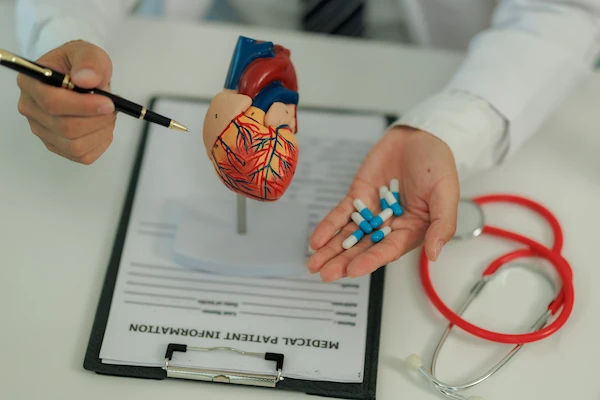- male
- 40 Years
- 20/02/2025
I'm a bit confused and concerned about my heart health. I had an ECG that showed a myocardial infarction, but after doing 45 more ECGs, they all turned out normal. My echocardiogram is normal too, and the cardiac markers came back negative. I don't know why this happened, and it's making me anxious. The initial reason for the ECG was some giddiness I felt. Should I be worried about these results?
Answered by 1 Apollo Doctors
It is possible that the initial ECG showing myocardial infarction was a false positive result, which can sometimes occur due to technical errors or other factors. Since subsequent ECGs, echo, and cardiac markers are normal, it is reassuring that there is no evidence of ongoing heart damage. However, it is important to continue monitoring your symptoms and follow up with your healthcare provider for further evaluation if you experience any recurrent symptoms such as chest pain, shortness of breath, or dizziness.
Dr. Dhankecha Suggests...
Consult a Cardiologist
Answered 25/07/2025
0
0

More Cardiology Health Queries
View allI'm dealing with some slight chest pain and noticed it happens when I'm not breathing fully, like my breath feels kind of incomplete. It's been going on for the past month and sometimes can last the whole day. I'm worried and not sure what's going on. Could you give me some advice on this?
take tab pantop 40mg for 3 days
Answered by 1 Apollo Doctors
I'm currently taking Telma 40mg twice a day as my doctor recommended, but I accidentally bought Telma 20 instead. To make up for it, I've been taking two Telma 20 tablets each time. Is this okay, or did I mess up? Should I be concerned about any risks with doubling up like this?
No, as long as the dosage remains the same, it should not cause any significant issues.
Answered by 1 Apollo Doctors
I'm feeling a lot of pain in my left shoulder and it's been happening pretty often since yesterday. I'm really concerned it might be linked to a heart issue. What should I do?
An ecg and cardiac markers are advised.
Answered by 1 Apollo Doctors
Disclaimer: Answers on Apollo 247 are not intended to replace your doctor advice. Always seek help of a professional doctor in case of an medical emergency or ailment.


_0.webp)
